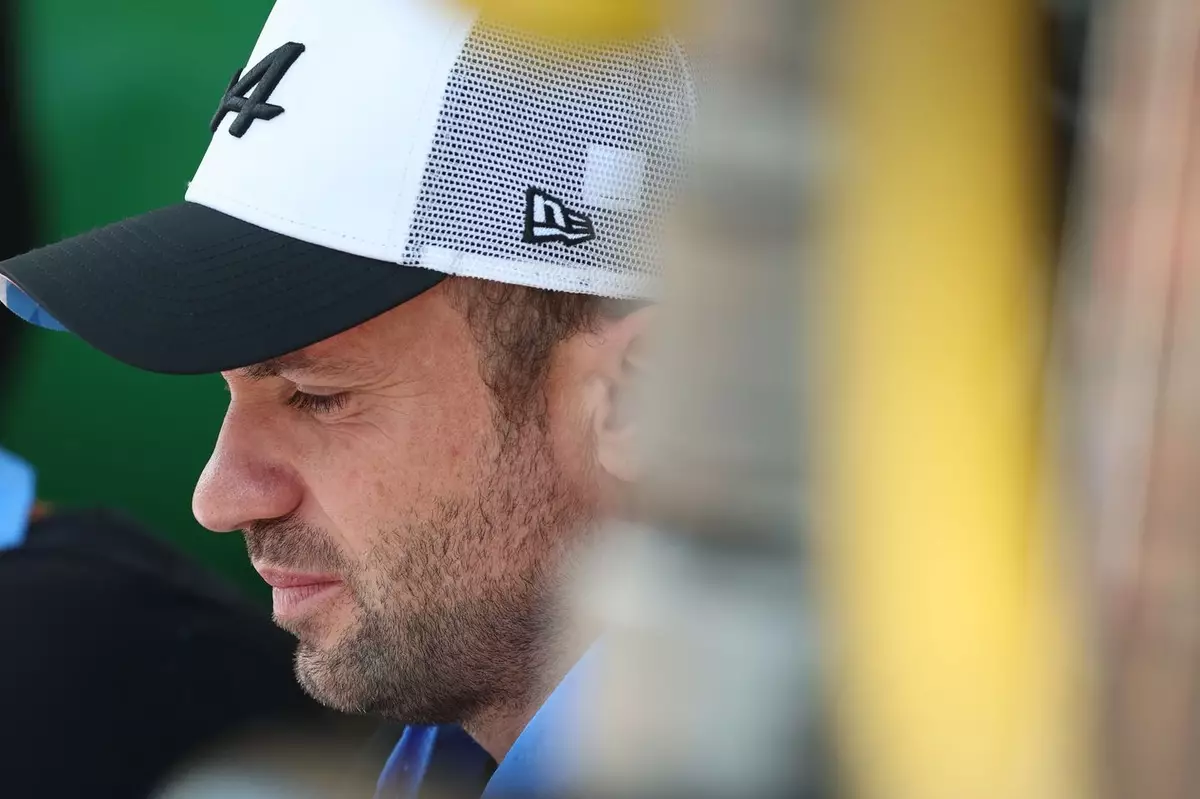Nicolas Lapierre’s recent announcement of his retirement from professional racing has marked a significant moment in the world of endurance motorsport. After a remarkable career highlighted by four Le Mans 24 Hours class victories and various accolades, the 40-year-old French driver expressed his intent to step away from the cockpit, focusing instead on his role as a team manager for Cool Racing. His final race with Alpine at the World Endurance Championship last month in Fuji signifies not just an end but a seamless transition into a new chapter in the motorsport world.
Lapierre took to social media, sharing a heartfelt video where he discussed his decision to “hang up his helmet,” emphasizing his deep affection for racing while asserting that he will remain closely tied to the sport. His focus will now shift to directing the CLX Motorsport operation, which he co-founded in 2020. This venture under the Cool Racing brand aims to not only compete but also cultivate young talent in the discipline, a pursuit that showcases Lapierre’s passion for motorsport far beyond personal achievements.
Nicolas Lapierre’s journey has been tangible evidence of talent meeting opportunity. His career spans several racing championships, including GP2 and A1 Grand Prix, and he has made a significant imprint in the World Endurance Championship with both Toyota and Alpine. His ability to adapt and thrive across these platforms is commendable, and the gratitude he expressed towards key figures like Philippe Sinault and Jean-Paul Driot highlights the collaborative spirit pervasive in motorsport.
With a background that began in single-seater racing, Lapierre’s evolution into endurance racing garnered him not just accolades but also a commendable legacy. Under the guidance of mentors, particularly those at the Signatech team and DAMS, he achieved monumental milestones that shaped his career, including a GP2 victory and notable performances in endurance racing.
Key figures in Lapierre’s journey significantly impacted his trajectory. For instance, Hugues de Chaunac of ORECA extended early opportunities that allowed him to dive into sportscar racing. This decision proved pivotal, as Lapierre secured triumphs such as the Sebring 12 Hours in 2011. His connection with Toyota Gazoo Racing Europe paved the way for a promising career, where he not only won six WEC races but also faced challenges that sparked personal growth.
In his farewell, Lapierre paid homage to those who played instrumental roles, particularly David Floury, whose encouragement came at a critical juncture in Lapierre’s career. Floury’s support allowed him to rebound from setbacks that could have prematurely ended his racing pursuits. This narrative underscores a critical theme in motorsport: the importance of mentorship, where the wisdom of seasoned professionals can significantly alter the course of young talents.
Looking forward, Lapierre’s involvement with Cool Racing signifies a commitment to developing new talent and contributing to the future of endurance racing. The operation, based in Annecy, France, aims to compete at high levels and potentially collaborate with notable manufacturers, including Hyundai Motorsport as they enter the competitive prototype landscape. Such partnerships could lead to immense opportunities, and Lapierre’s leadership will be crucial in navigating these waters.
With emerging drivers like Jules Gounon likely to step into more prominent roles following Lapierre’s departure from the cockpit, Cool Racing is poised to become a breeding ground for the next wave of talent in endurance racing. Lapierre’s blend of experience, knowledge, and passion for motorsport will undoubtedly guide the team to new heights.
As Lapierre embarks on this next phase of his life, the motorsport community reflects on the legacy he leaves behind. His story is a reminder of the cyclical nature of racing, where the end of a competitive career can lead to new beginnings in mentorship, management, and innovation. While many fans will miss seeing Lapierre on the track, it is comforting to know that he will remain integral to the sport in a different capacity.
Nicolas Lapierre’s retirement is not merely a farewell but an opening to a new horizon where he can guide and inspire future generations of racers. This transition exemplifies how the world of motorsport thrives on change, with every ending leading to new opportunities and fresh beginnings. As he sets his sights on leading Cool Racing, Lapierre is not disappearing from the scene but rather repositioning himself to influence the sport he loves in profound ways.


Leave a Reply